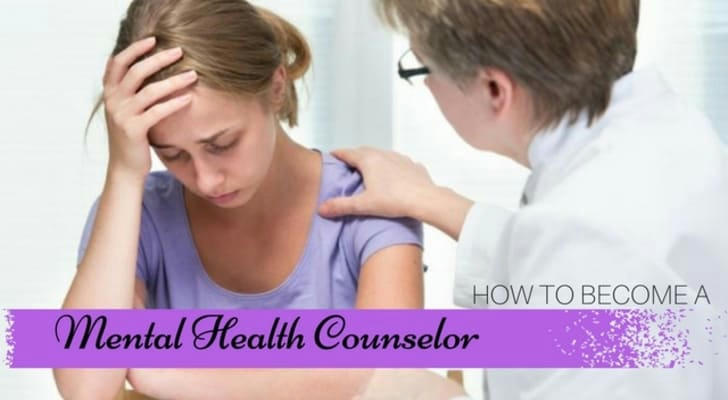Why You Should Consider Mental Health Counseling Course:Tuition reduction & Job support
The United States is facing an acute shortage of mental health professionals. According to the U.S. Department of Health and Human Services (HHS), over 160 million Americans live in areas with a shortage of mental health providers (HRSA, 2023). In response, the U.S. government has significantly increased its support for training programs, providing tuition waivers, employment support, etc. to rapidly expand the talent pool in the field of behavioral health.

Advantages of Government-supported Mental Health Counselors
1. Financial Support
Tuition waivers, scholarships, and stipends help alleviate the financial burdens that prevent individuals from pursuing a career in mental health. They can gain practical experience while relieving financial stress.
2. Fast-Track Employment Opportunities
Government-backed programs often partner with employers in the mental health field, such as hospitals, clinics, schools, and non-profit organizations. Graduates of these programs often receive direct referrals to employers looking to fill entry-level psychological health counseling positions. These programs also provide job placement assistance, making it easier for graduates to secure work quickly.
3. Official Certifications
Upon completion of program, graduates typically receive a official certification in psychological health counseling that are recognized across various sectors, including schools, mental health agencies, and private practices.
Government-Backed Certification Programs
Behavioral Health Workforce Education and Training Program(BHWET)
Led by the U.S. Health Resources and Services Administration (HRSA), it provides grants and tuition assistance to universities that offer mental health courses. Aims to develop and expand a behavioral health workforce that serves people of all ages, including rural and medically underserved areas, with a focus on substance abuse treatment.
Advantages: Provide students with internship subsidies, living allowances, and tuition waivers
Representative beneficiary schools: NYU, Boston College, University of Southern California, etc.
California: Peer Support Specialist Certification
California launched its Certified Peer Support Specialist credential, officially recognized by the state’s Department of Health Care Services (DHCS). The program includes:
Health counselor training for Medicaid-eligible individuals
Paid internship opportunities in public mental health settings
Priority hiring in state-supported clinics and behavioral health organizations

New York: Mental Health Workforce Incentive Programs
The state of New York offers tuition reimbursement and loan forgiveness for individuals completing state-approved mental health training programs and working in designated shortage areas. The initiative particularly encourages bilingual and culturally competent counselors to serve underserved populations.
What You Will Learn
These certification programs are designed for accessibility and practical application. Core learning modules include:
-Introduction to Counseling Psychology
-Stress and Anxiety Management Techniques
-Suicide Risk Identification and Crisis Response
-Communication and Active Listening Skills
-Mental Health Ethics and Boundaries
-Referral Systems and Professional Networks
Courses typically run 3 to 6 months, and many offer online options to accommodate working adults.
Who Should Apply?
These programs are designed to be accessible to non-traditional students, including:
Young Adults (18-25): School graduates seeking certificate-level qualifications rather than a full degree
Career Switchers(26-45): Individuals seeking a career switch into a purpose-driven field;Healthcare workers, teachers, and HR professionals wanting to enhance their skill set.
Middle-aged Adults(46+): Stay-at-home parents, retirees and volunteers interested in community service
Many programs require no prior experience and provide supportive mentorship, flexible schedules, and field placements to prepare students for real-world counseling roles.
How to apply?
1.Find the right program
Visit your local health department or education bureau website to learn about government-supported mental health counseling certification programs. Choose a program that meets your needs.
2.Confirm eligibility requirements
Make sure you meet the basic requirements of the program, such as age, education, work experience, etc.
3.Prepare application materials
Provide required documents such as identity proof, education certificate, income proof, etc.
4.Submit application
Submit application materials through the online application system.
5.Get accepted and complete training
If accepted, complete course study, internship and relevant certification exams to obtain the certificate.

Real case:Emily’s Career Change
Emily, from California, was a retail worker who felt anxious due to long-term work pressure and family affairs. She decided to change careers and enter the field of mental health. After learning about California's Peer Support Specialist Certification Program, Emily decided to sign up for the program.
Through this government-supported program, Emily not only received tuition assistance, but also enjoyed paid internship opportunities during her studies. She received training on basic mental health theories, crisis intervention skills, and establishing effective communication with patients.
After completing the certification, Emily successfully found a job at a community mental health center in the Los Angeles area and became a professional peer support specialist.
Her work not only helped other patients with mental health problems, but also allowed her to find a new career direction and sense of accomplishment.
Take the First Step into a Meaningful Career
With the mental health crisis reaching global proportions, the need for trained, empathetic counselors is more urgent than ever. Thanks to growing government support, you don't have to spend a lot to get certified or find a job in this field.
Take advantage of tuition subsidies and job placement support today—your path to becoming a psychological health counselor starts now. 🚀
